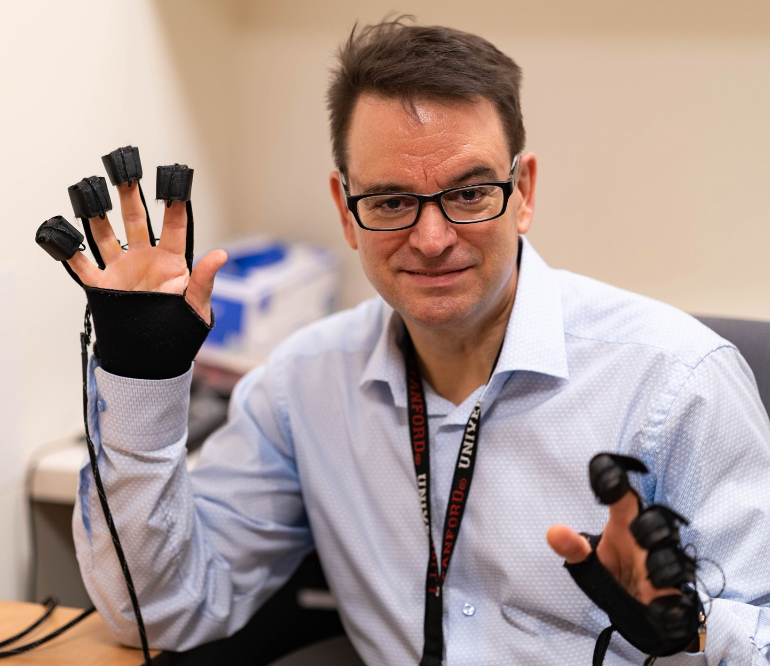I am delighted to announce that our next NoSilverBullet Zoom session will be taking place at 7.30pm London time on Monday, the 5th of June 2023.
Dr. Peter Tass from Stanford Medical School will be talking to us about “Vibrotactile fingertip stimulation to ease Parkinson’s symptoms”.
Please use the Eventbrite link below to register for this event:
eventbrite.co.uk/e/dr-p-tas...
Please also visit our new website: nosilverbullet4pd.com/
—--------------------------------------
Peter Tass studied medicine (MD, Ulm and Heidelberg Univ., Germany), physics (PhD, Stuttgart Univ., Germany), and mathematics (diploma, Stuttgart Univ.) and made a Habilitation in physiology (RWTH Aachen University, Germany).
Since 2017 he is Professor of Neurosurgery in the Department of Neurosurgery, Stanford University Medical School. Peter Tass investigates and develops neuromodulation techniques for understanding and treating neurologic conditions such as Parkinson’s disease, epilepsy, dysfunction following stroke and tinnitus. He creates invasive and non-invasive therapeutic procedures by means of comprehensive computational neuroscience studies and advanced data analysis techniques.
Peter Tass has published more than 170 peer-reviewed papers, is inventor or co-inventor on more than 270 patents and received a number of national and international awards.
Stanford lab homepage: med.stanford.edu/tass-lab.html
